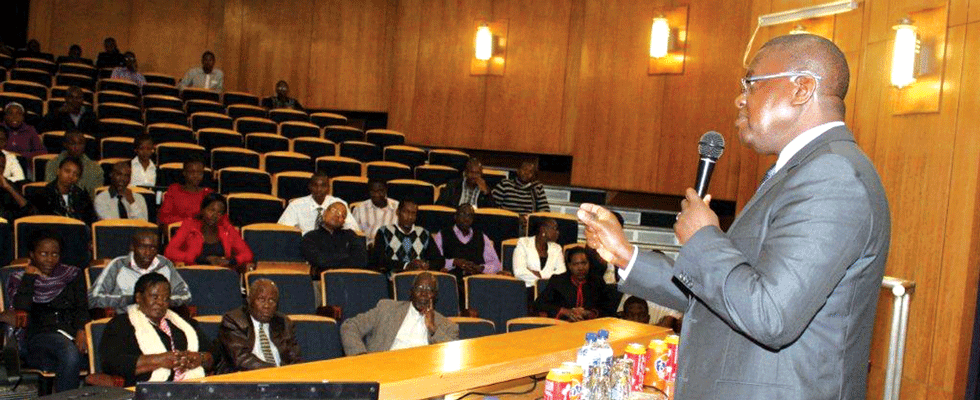
ALPHA Media Holdings (AMH) chairman Trevor Ncube yesterday encouraged journalism training institutions to embrace new information technologies in their curricula, as the world was increasingly going digital.
Report by Staff Writer
Presenting a paper titled Media Trends in Africa — from Print to Mobile at the inaugural National University of Science and Technology (Nust)’s Journalism and Media Studies guest lecture series as part of the faculty’s World Press Freedom Day celebrations, Ncube described the mobile phone as a game changer.
Ncube, chairman of AMH, publishers of NewsDay, The Standard and the Zimbabwe Independent, said the traditional newspaper was on its way out and its place was being taken by new technologies, particularly the Internet and mobile phones.
“Africa’s young and educated is in love with mobile phones and the Internet,” he said.
“This group has not yet fallen in love with newspapers and the majority never will.
“The opportunity that the newspaper industry has on the continent is to get its content onto smart and feature phones and tablets and build sustainable business models around this new ecosystem.”
Ncube said the digital revolution had been made possible by the deployment of submarine fibre optic cables, a development that had seen Internet connectivity prices going down by more than 80%.
- Chamisa under fire over US$120K donation
- Mavhunga puts DeMbare into Chibuku quarterfinals
- Pension funds bet on Cabora Bassa oilfields
- Councils defy govt fire tender directive
Keep Reading
“There will be over 230 million mobile broadband connections in Africa by 2015 and more people (will have) broadband (Internet) than electricity at home,” he said.
“This is huge for the newspaper industries’ ability to develop business models that take advantage of this technological revolution.”
Ncube said there was an estimated 735 million mobile phones in Africa with projections of 85% mobile connectivity by 2015 across the continent, adding that Africa was the second largest mobile market in the world after China.
“This, plus the fact that 40% of Africa’s population is under 15 years of age, says the continent will enjoy a massive demographic dividend, which has potential to have a positive impact on the newspaper industry on the continent for a long time to come,” he said.
Ncube said there were scenarios that projected that the last newspaper to be published in the entire world would be in Africa in 2038.
“The (newspaper) industry’s current problems on the continent are daunting and require substantial financial investments,” he said.
“And yet the digital revolution presents the continent with an opportunity to catapult into the future with new confidence.”











